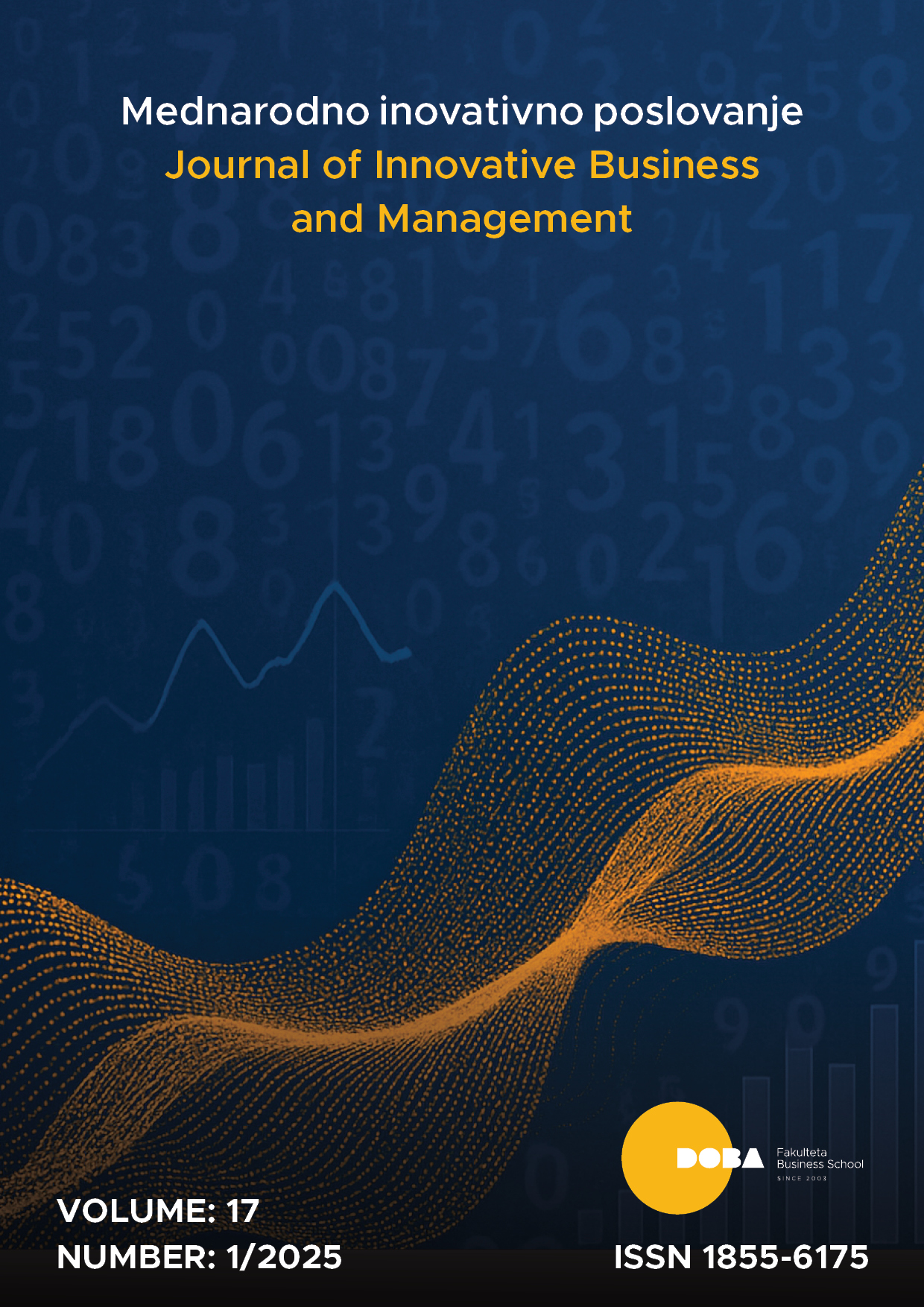Integracija kognitivne rehabilitacije v celostno oskrbo bolnikov z multiplo sklerozo: teoretične osnove, klinična praksa in prihodnje usmeritve
DOI:
https://doi.org/10.32015/JIBM.2025.17.1.6Ključne besede:
kognitivna rehabilitacija, multipla skleroza, nevropsihologija, kognitivna rezerva, interdisciplinarna oskrbaPovzetek
Kognitivne motnje so pogost in pomemben vidik multiple skleroze (MS), pogosto prisoten že v zgodnjih fazah bolezni. Kljub razširjenosti te motnje pogosto ostajajo spregledane in nezadostno obravnavane v klinični praksi. Ta članek obravnava sodobne pristope kognitivne rehabilitacije pri MS, s poudarkom na integraciji nevropsihološkega znanja, individualiziranem pristopu k obravnavi ter vlogi interdisciplinarnih timov. Na podlagi pregleda literature predstavi glavne značilnosti kognitivnih sprememb, pristope k ocenjevanju in strategije intervencij, vključno z računalniško podprtimi programi, metakognitivnimi tehnikami in ekološko usmerjenimi metodami. Članek zagovarja sistematično vključevanje kognitivne rehabilitacije v vsakodnevno klinično prakso ter izpostavlja potrebo po večji dostopnosti, standardiziranih postopkih in razvoju na podlagi raziskav v prihodnosti.
Literatura
Appelbaum, P. S., Lidz, C. W., & Klitzman, R. (2009). Voluntariness of consent to research: A conceptual model. Hastings Center Report, 39(1), 30–39.
Beauchamp, T. L., & Childress, J. F. (2019). Principles of biomedical ethics (8th ed.). Oxford University Press.
Benedict, R. H. B., Amato, M. P., DeLuca, J., & Geurts, J. J. G. (2020). Cognitive impairment in multiple sclerosis: Clinical management, MRI, and therapeutic avenues. The Lancet Neurology, 19(10), 860–871.
Boeschoten, R. E., Braamse, A. M. J., Beekman, A. T. F., Cuijpers, P., van Oppen, P., Dekker, J., & Uitdehaag, B. M. J. (2017). Prevalence of depression and anxiety in multiple sclerosis: A systematic review and meta-analysis. Journal of the Neurological Sciences, 372, 331–341.
Bonzano, L., Tacchino, A., Brichetto, G., Roccatagliata, L., Abbruzzese, G., Mancardi, G. L., & Bove, M. (2014). Cognitive rehabilitation in multiple sclerosis: The role of plasticity. Frontiers in Neurology, 5, 147. https://doi.org/10.3389/fneur.2014.00147
Chiaravalloti, N. D., & DeLuca, J. (2008). Cognitive impairment in multiple sclerosis. The Lancet Neurology, 7(12), 1139–1151.
Corrigan, P. W., & Watson, A. C. (2002). Understanding the impact of stigma on people with mental illness. World Psychiatry, 1(1), 16–20.
De Meo, E., Ziccardi, S., Stojanovic, J., et al. (2021). Telemedicine and multiple sclerosis: An update and a review. Current Opinion in Neurology, 34(3), 322–329.
Filippi, M., Rocca, M. A., Barkhof, F., et al. (1998). A guideline for determining brain atrophy in multiple sclerosis. Brain, 121(4), 807–815.
Flachenecker, P., & Meissner, H. (2021). Comprehensive rehabilitation for patients with multiple sclerosis. Journal of Neurology, 268(3), 1115–1123. https://doi.org/10.1007/s00415-020-10227-5
Khan, F., Amatya, B., Kesselring, J., & Galea, M. (2021). Cognitive rehabilitation for people with multiple sclerosis: A systematic review. Multiple Sclerosis Journal, 27(2), 184–202. https://doi.org/10.1177/1352458520934634
Langdon, D. W., Amato, M. P., Boringa, J., et al. (2021). Recommendations for a brief international cognitive assessment for multiple sclerosis (BICAMS). Multiple Sclerosis Journal, 27(6), 805–814.
Latimer-Cheung, A. E., Pilutti, L. A., Hicks, A. L., Martin Ginis, K. A., Fenuta, A. M., MacKibbon, K. A., & Motl, R. W. (2016). Rehabilitation in multiple sclerosis: A systematic review of systematic reviews. Archives of Physical Medicine and Rehabilitation, 97(1), 156–177. https://doi.org/10.1016/j.apmr.2015.07.023
Lezak, M. D., Howieson, D. B., & Loring, D. W. (1983). Neuropsychological assessment. Oxford University Press.
Longley, W. A. (2022). The role of the neuropsychologist in interdisciplinary rehabilitation. NeuroRehabilitation, 50(1), 1–10.
Magdič, J., Hojs, A., & Splicin, M. (2018). Brain atrophy and cognitive dysfunction in patients with multiple sclerosis. Slovene Medical Journal, 87(3), 163–170.
Miller, D. M., Allen, R., Chiaravalloti, N. D., & Glanz, B. I. (2015). Rehabilitation in multiple sclerosis: Report of the Guideline Development, Dissemination, and Implementation Subcommittee of the American Academy of Neurology. Neurology, 84(17), 1776–1783. https://doi.org/10.1212/WNL.0000000000001537
Prosperini, L., & Di Filippo, M. (2019). Beyond clinical changes: MRI correlates of cognitive improvement after cognitive rehabilitation in MS. Multiple Sclerosis Journal, 25(4), 530–539.
Riva, G., Baños, R. M., Botella, C., Mantovani, F., & Gaggioli, A. (2016). Transforming experience: The potential of augmented reality and virtual reality for enhancing personal and clinical change. Frontiers in Psychiatry, 7, 164.
Rocca, M. A., Amato, M. P., De Stefano, N., et al. (2019). Clinical and imaging assessment of cognitive dysfunction in multiple sclerosis. The Lancet Neurology, 18(2), 174–186.
Rosti-Otajärvi, E., & Hämäläinen, P. (2014). Neuropsychological rehabilitation for multiple sclerosis. Cochrane Database of Systematic Reviews, 2014(2), CD009131.
Sumowski, J. F., Benedict, R. H. B., Enzinger, C., et al. (2018). Cognition in multiple sclerosis: State of the field and priorities for the future. Neurology, 90(6), 278–288.
Walton, C., King, R., Rechtman, L., et al. (2020). Rising prevalence of multiple sclerosis worldwide: Insights from the Atlas of MS, third edition. Multiple Sclerosis Journal, 26(14), 1816–1821.
Prenosi
Objavljeno
Številka
Rubrika
Licenca
Avtorske pravice (c) 2025 Estera Žalik, Anja Rakuša Brus

To delo je licencirano pod Creative Commons Priznanje avtorstva-Nekomercialno 4.0 mednarodno licenco.
Avtorske pravice so zaščitene s Creative Commons Priznanje avtorstva-Deljenje pod enakimi pogoji 4.0 Mednarodna CC BY-SA 4.0 in jih avtorji ohranijo v okviru te licence. Za objavo svojega članka, vključno s povzetkom, prenesejo avtorji avtorske oz. licenčne pravice na revijo MIP = JIBM. To nam omogoča popolno zaščito avtorskih pravic ter razširjanje članka in revije MIP=JIBM v najširši možni krog bralcev revije v elektronski obliki. Avtorji so sami odgovorni za pridobitev dovoljenja za razmnoževanje avtorskega gradiva iz drugih virov.















